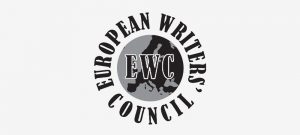
“By joining the European Writers’ Council, the SYNDIKAT can participate in literary policy decisions that are made at European level, i.e. long before they are implemented in the national frameworks”, says The Syndikat’s Chair, the writer Jens J. Kramer. Read more about the new EWC member:
“By joining the European Writers’ Council, the SYNDIKAT can participate in literary policy decisions that are made at European level, i.e. long before they are implemented in the national frameworks”, says The Syndikat’s Chair, the writer Jens J. Kramer. “We will gain access to information, and when we can get involved in important issues actively. In the upcoming years we all will be dealing with topics that are relevant to every writer, even beyond national or linguistic borders: what is the significance of literature and its authors in and after the Corona crisis? Which topics and discourses can and must be initiated by authors? And how can we guarantee that the moral and economic rights of those who are the sources of the entire literary landscape and book value chain are respected?”
Kramer underlines: “We are convinced that our members and every author will benefit from European cooperation among writers and translators. The SYNDIKAT looks forward to the exchange and cooperation with the 45 colleague associations.”
The SYNDIKAT
The SYNDIKAT, the Association of German Language Crime Writers, was founded in 1986. With 750 authors from Germany, Austria and Switzerland, SYNDIKAT is the largest association for suspense literature in the German-speaking world and covers the entire genre from regional crime fiction to international thrillers. At SYNDIKAT bestselling authors, genre-spanning all-rounders, ambitious part-time writers and newcomers meet at eye level to exchange ideas and organise common interests. This takes place primarily at the annual festival, the CRIMINALE.
The CRIMINALE
For more than thirty years, the SYNDIKAT has been organising the CRIMINALE, a festival of crime literature which takes place every spring in a different region of Germany, Austria or Switzerland. Over five days, around 300 crime writers organise a variety of literary events and exchange ideas with professional visitors from the world of literature and the media, as well as with interested crime writers personally. The programme includes over 80 different events. The focus is on readings, literary and political panel discussions, lectures by experts, book signings and parliamentary evenings. In addition, numerous workshops are held on criminological and other topics such as weapons science or profiling, self-marketing or voice training, authors’rights, contracts or the shifts in the book market. The festival programme is complemented by events such as cooking duels, Tango-Argentino courses and a football match between crime writers and a local selection. The highlight and conclusion of the festival is always the award ceremony, the “Tango CRIMINALE” on Saturday evening with the awarding of the GLAUSER, the crime novel award named after the Swiss author Friedrich Glauser, in the categories novel, debut, short crime novel, youth and children’s crime novel.
Five new members were welcomed by the Assembly of the European Writers’ Council:
The European Writers’ Council is delighted to announce the ratification of five new members and welcomed the colleagues warmly by the Assembly:
—The Society of Hungarian Authors Szépírók Társasága, Hungary
—The Literature and Criticism Association (LCA), Cyprus
—The Norwegian Society of Authors – Forfatterforbundet, Norway
—La Société des Gens de Lettres, France
—The Syndikat, The Association of German Language Crime Writers, Germany
The EWC continues to expand its diversity, competence, collegiality and cohesion through this strong enrichment of its new members and colleagues. The European Writers’ Council represents now 160,000 professional writers and translators in the book and text sector in all genres, from 46 European national organisations of professional writers and translators in 30 countries including the EU, the EEA countries Iceland and Norway, as well as Belarus, Montenegro, Switzerland, and Turkey, altogether writing in 32 languages.
Brussels, 07 September 2020


